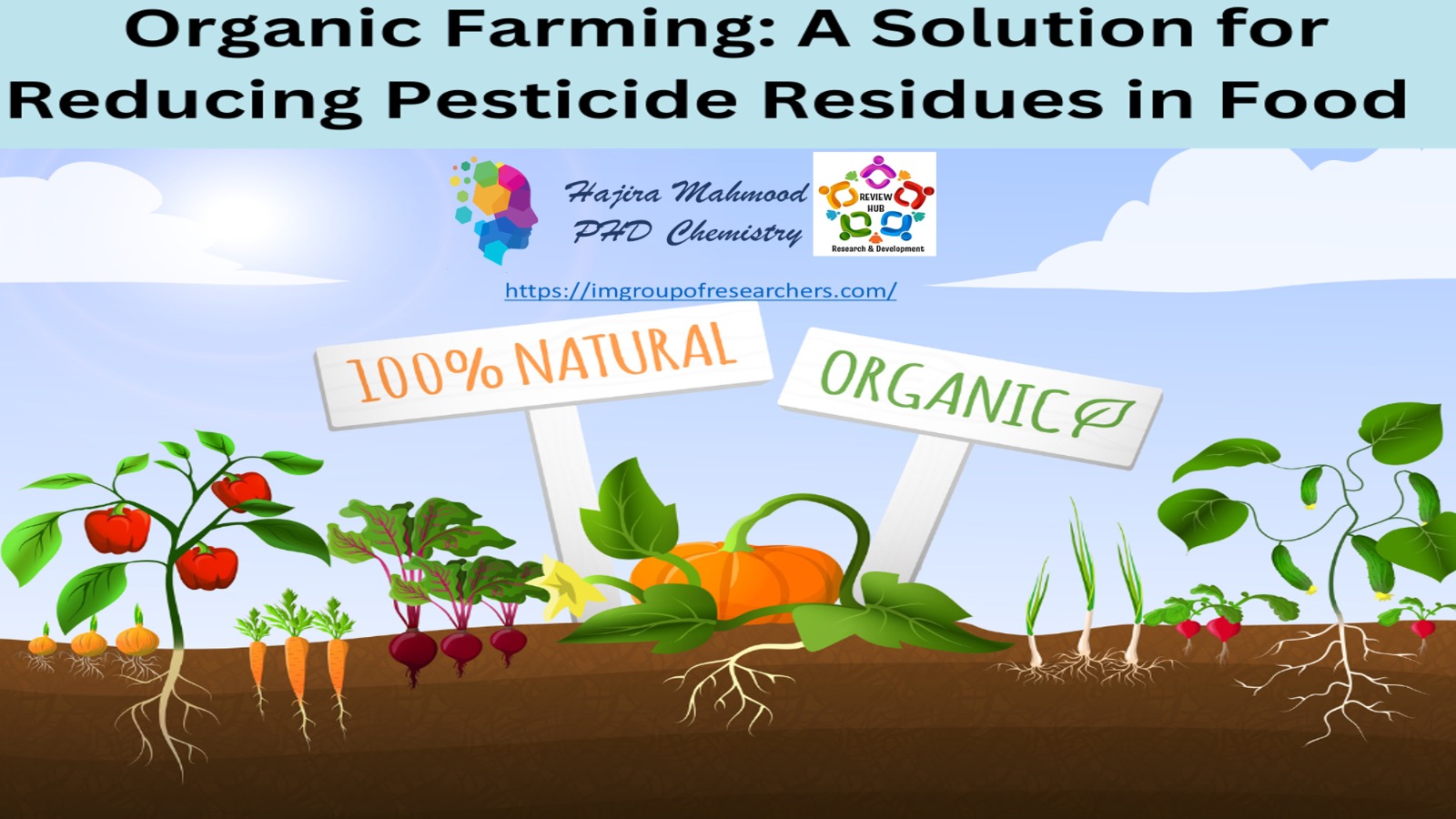Organic Farming: A Solution for Reducing Pesticide Residues in Food. Indeed, organic farming is considered a solution for reducing pesticide residues in food. Organic farming practices aim to minimize the use of synthetic pesticides and instead focus on natural and environmentally-friendly methods of pest and disease control.
Author: Hajira Mahmood
Here are some ways in which organic farming contributes to reducing pesticide residues:
1. Restricted Synthetic Pesticide
Use: Organic farming prohibits or significantly limits the use of synthetic pesticides. Instead, it promotes the use of cultural, biological, and mechanical methods to manage pests and diseases.
2. Emphasis on Soil Health
Organic farmers prioritize maintaining soil health through practices like crop rotation, cover cropping, and composting. Healthy soils contribute to stronger plants with improved natural defense mechanisms against pests and diseases.
3. Biological Pest Control
Organic farming encourages the use of natural predators, parasites, and beneficial insects to control pests. By promoting biodiversity and ecosystem balance, organic practices reduce the reliance on chemical interventions.
4. Crop Diversity
Organic farmers often employ diverse crop rotations and intercropping strategies. This helps to disrupt pest life cycles, reduce pest pressures, and prevent the buildup of pests that target specific crops.
5. Strict Certification Standards
In order to be certified organic, farmers must adhere to rigorous organic standards and undergo regular inspections. This ensures compliance with organic farming practices that limit pesticide use and promote sustainable agriculture.
6. Consumer Awareness and Demand
The growing consumer interest in organic products has encouraged more farmers to adopt organic farming practices. This increased demand has led to expansion in the organic farming sector, providing consumers with more pesticide-free options.
Although organic farming is not completely pesticide-free, it offers a more sustainable and environmentally conscious approach to agriculture, reducing the overall pesticide residues in food. It promotes healthier ecosystems, supports biodiversity, and provides consumers with an alternative choice for pesticide-reduced food products.
Also read: How does Agricultural and Food Chemistry Contribute to Ensure Food Safety?
Follow Us on

